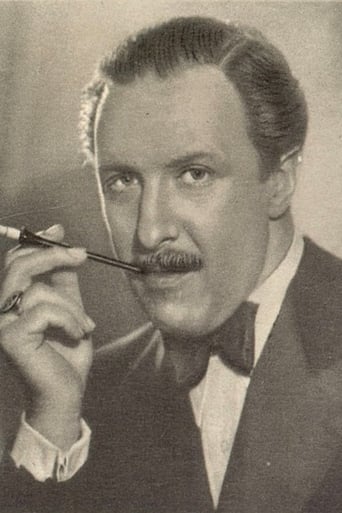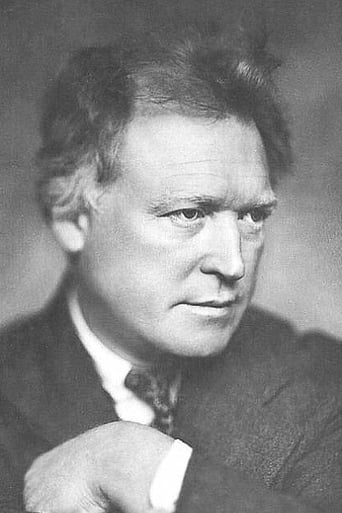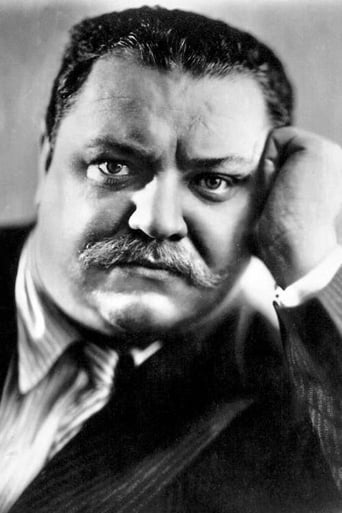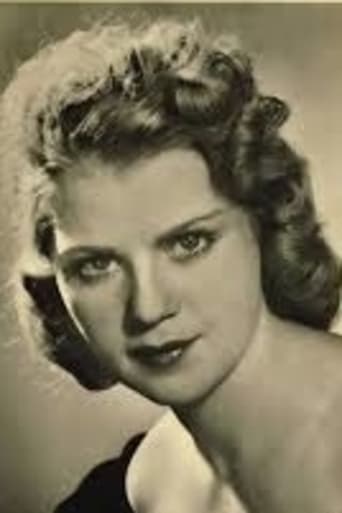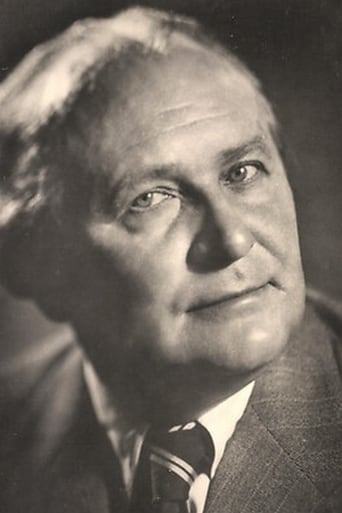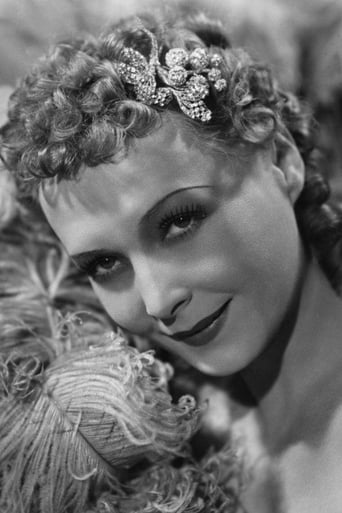Horst in Translation (filmreviews@web.de)
If you exclude documentary films like "Triumph of the Will", this film here may be the most despicable and anti-Semitic propaganda movie that was made during the Nazi regime. It is black-and-white, runs for slightly over 90 minutes and written and directed by Veit Harlan. After World War II, the existence of this film turned out a stain of shame on the bodies of work of everybody who was associated with this project, mostly lead actor Ferdinand Marian, but also Heinrich George for example, father of notable German actor Götz George, and also a legend in his own right. His character here is the personification of the evil Jew. He is corrupt, egoistic and not scared of whatever evil it takes for him to become wealthier and more important in terms of politics. The irony of that being compared to actual Nazi politicians. Everybody who is close to Jud Süß Oppenheimer faces destruction in the end, be it his friends or foes. He is basically a death bringer. But not only is he a fraudulent schemer, he is also a physical menace who is not scared of raping girls when they decide to refuse his approach. He takes what he wants and acts as if he is above the law. The goal of Harlan and the Nazi Ministry of Propaganda here was to make the Jew look as bad as possibly. pay attention to how the film goes on Oppenheimer is rarely called by his name anymore, but called "the Jew". Generalization was a big objective here, so that the German people would perceive the protagonist's action as symbolic for the entire Jewery. Another crucial aspect here is how it is depicted that Jud Süß only cares about his religion really if he can use it to his advantage.It is fairly difficult to evaluate this movie. One the one hand, there are the outrageously offensive and loathsome contents, but on the other hand, it is also a priceless historic document of how film tried to change people's minds. Then again, looking merely at the story and trying to ignore all the factors concerning religion, I would not say that this is a particularly well-made piece of movie-making. I guess it is worth a watch for people with a big interest in film as well as history of the 20th century, but everybody else does not need to watch it really.
bkoganbing
The life and unhappy end of said life for Joseph Oppenheimer, the famous Jew Suss has been interpreted in many ways over the years in a variety of medium. The most vile interpretation was that done in this 1940 film, personally produced and supervised by Joseph Goebbels.The real Oppenheimer was out of Vienna where he had done considerable business with the Catholic Hapsburgs and moved to the Wurttemberg area where he came to the attention of the heir to Duchy of Wurttemberg who after he became Duke made Oppenheimer his first minister.Duke Karl Alexander played by Heinrich George is an ambitious fellow who would like to create a miniature Versailles over in Stuttgart an ambition that a number of German heads of state wanted to emulate including Frederick the Great over in Prussia. Ferdinand Marian as Oppenheimer is a worldly high living fellow himself who provides a number of financial schemes that increase the Duke's treasury. Of course while doing it he arouses the ire of the local Lutheran gentry. After Duke Karl Alexander dies, the burghers of Stuttgart do to Oppenheimer precisely what you see in Jew Suss.Without the religious component the closest thing approximating this story was that of Nicolas Fouquet, Louis XIV's minister of finance over in France. He lived high on the hog, too high in the opinion of his king. Fouquet was however first given exile and then had the sentence commuted to life in prison.What Oppenheimer's story played into was a latent anti-Semitism already instilled in the population by Martin Luther. During the course of the movie the burghers of Stuttgart warn the Duke of Luther's warnings about how vile those Jews are, but the Duke fails to heed. The Catholic Hapsburg connection isn't brought in as the Austrians were now part of the Reich.The real Oppenheimer was accused of being an agent for those Hapsburgs in real life. But here he's the agent of a deep and nebulous Jewish conspiracy to take over Wurttemberg. Today Wurttemberg, tomorrow the world. Like Jews always do, he's got designs on Aryan women and in his sites here is Krista Soderburg, a Swedish actress married to the director of Jew Suss, Veit Harlan who always played the prototype of Aryan women in German films. Her being debauched and later suicide sparks all the latent hatred against Oppenheimer that gets unleashed with the demise of Duke Karl Alexander. Her Aryan sweetheart played by Malte Jager leads the mob against Oppenheimer.Again in real life Oppenheimer was a worldly sort who never had any trouble getting women to give up the goods. A whole lot like Fouquet over in France, but again we have the religious component here.Mind you this same story had been filmed six years earlier over in Great Britain with the exiled Conrad Veidt playing Oppenheimer. In that version, Oppenheimer is endowed with saintly qualities and is a martyr, saintly qualities the real Oppenheimer probably would have scorned. It's fascinating the different spin you can give, especially if you're in the propaganda game. Joe Goebbels, the little club footed maniac who ran German cinema as part of the Propaganda Ministry, had a casting couch that dwarfed any in Hollywood and anything that Oppenheimer in real life could ever dream of.I won't put a rating on Jew Suss, this is such a vile story meant to inflame anti-Semitism and succeeding horribly. This was required viewing for people entering the S.S. those who became guards at the concentration camps. It was vile when it occurred in real life and viler yet when told by the Nazis in this film.
Danusha_Goska Save Send Delete
I loved "Jud Suss," both the film and the character.Loving this movie was disturbing. "Jud Suss" was commissioned and overseen by Joseph Goebbels, Hitler's propaganda minister and Reich Plenipotentiary for Total War. The film was shown before Nazis began rounding up Jews. "Jud Suss" played a direct, horrific, role in the Holocaust. You can't talk about this film without that nightmare hovering over every word you say.I ended up writing a long essay entitled "Loving Jud Suss." The essay is now linked from my homepage. I hope interested readers will have a look and share their thoughts. I'll try to convey the gist here.First, this is a well-made, vintage, costume melodrama slash swashbuckler. If you like Golden Age, black-and-white, big budget, studio adaptations of popular novels set in the eighteenth century, chances are you could enjoy many aspects of this film: palace intrigue, fast pace, romance, period detail.I watched "Jud Suss" as if on split screens. The Nazis want the viewer to see an amoral, crafty Jew who destroys the life of a German city, Stuttgart, by introducing ballet, flirtation, and parties, by instituting a tax to improve the region's poor roads, and by allowing Jews entry to the city. I resisted what the Nazis wanted me to see. I like ballet. I live in a state with toll roads; good roads have to be paid for somehow. I don't think that allowing Jews, or any minority, out of their ghetto and into previously segregated neighborhoods is a bad thing.I could *also* see what the Nazis did not want me to see. I could see how the film lays bare the self pity, sense of personal victimization, and exaggerated view of the power of the other that is at the heart of racism and prejudice. The main German characters in "Jud Suss" are pathetic. Faber is a ninety-pound weakling and insufferable bigot. He can't even consummate a kiss, never mind a marriage, with his beloved, Dorothea. Dorothea is beautiful but simpleminded and insincere. She wants Suss but can't handle her own desire. Councilman Sturm, Rader, and Duke Karl Alexander are all obese, shouting, ineffectual old men. That Nazis held up blowhard Sturm and prissy bigot Faber as the heroes of the piece tells you how skewed – and how foreign to our modern sensibilities – was the Nazi value system.In seeing both what the Nazis wanted me to see and what they did not want me to see, I could see the absurdity and ethical and intellectual bankruptcy of Nazi ideology. That exercise made this one of the most fascinating film watching experiences I've ever had.Ferdinand Marian, as Joseph Suss-Oppenheimer, made this movie. He is on screen for almost the entire film; even when he is not, he is the super potent center of others' attention. Marian's is one of the most riveting, charismatic performances I've ever seen. I could not take my eyes off him from his first scene to the last.Off-screen events add to the unforgettable quality of Marian's performance. The story is that Marian did not want to take this role, and was so distraught when Goebbels forced him into it that he got drunk and destroyed his own apartment with an ax. Marian died in a car accident, and the rumor is that he killed himself, because of this role and its horrible history.All the principles involved in "Jud Suss" made some excuse or another to try to get out of it. Goebbels tightened the screws and forced them into it. They later claimed that they did everything they could to make Suss as sympathetic as possible under the circumstances.I read Ferdinand Marian's "Jud Suss" as an unforgettably sympathetic character. Even as I was watching the film, even as I was seeing it on a split screen, with the Nazi version on one side and my own interpretation on another, I also saw the tumultuous surrounding events. I saw the real Joseph Suss Oppenheimer, an historical figure who was tortured and executed in eighteenth-century Stuttgart. His killers kept his body on display for six years. I saw Ferdinand Marian, the actor, forced to act in a film he wanted no part of. I saw Jud Suss, the character in the movie, a lone Jew surrounded by bigoted, narrow, primitive proto-Nazis who made his, and their own lives, a misery, because they insisted that only Jews could be so perverse as to bring culture, modernity, and eroticism to a decent, clean, lifeless German city. My sympathy overflowed for Suss the character, Marian the actor, and the historical Suss-Oppenheimer. A Nazi propaganda film achieved the feat of rendering the German characters in the film universally repulsive, and the one Jewish character irresistibly sympathetic. That being the case, it's all the more tragic that Marian ended his own life over this role.Scholars emphasize the charisma and appeal of Marian's depiction. In fact, the director, Veit Harlan, reported that Marian received "baskets of love letters." It is more than a bit weird that one of the sexiest overtly Jewish characters in the history of cinema is a character in a Nazi propaganda film.


